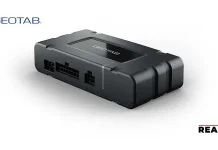Roche announced CE label expansion of the VENTANA PD-L1 (SP263) Assay in non-small cell lung cancer (NSCLC) as a companion diagnostic for Tecentriq® (atezolizumab). This advances the company’s commitment to guide clinical decision making through innovative, high quality assays that improve patient access to personalised healthcare.
The current standard of care for patients with early stage lung cancer is removal of the tumour, which may be followed by chemotherapy. Unfortunately, about half of these patients will have their cancer return following surgery.2 The European Commission approved Tecentriq in June 2022 as adjuvant treatment following surgery and platinum-based chemotherapy for adults whose Stage II-IIIA NSCLC tumours have high PD-L1 protein expression. The VENTANA PD-L1 (SP263) Assay identifies NSCLC patients who may be eligible for Tecentriq monotherapy in this indication, potentially reducing their risk of disease recurrence or death by more than half.
Also Read: FDA Approves Abbott New Spinal Cord Stimulation Device
“With early detection of lung cancer, it is possible to give patients more treatment options and potentially improve a patient’s outcome,” said Jill German, Head of Pathology Lab at Roche Diagnostics. “We are proud to offer a PD-L1 test that may qualify lung cancer patients for Tecentriq therapy. With this latest expansion, clinicians can consider multiple targeted immunotherapy options with one test to quickly determine the right treatment for each patient.”
The VENTANA PD-L1 (SP263) Assay was used in the IMpower010 study sponsored by Genentech, a member of the Roche Group, to identify patients whose tumours expressed the PD-L1 protein. The IMpower010 clinical study began in 2015 with the goal of understanding how patients would respond to treatment with Tecentriq following traditional surgery and chemotherapy. In 2021, Genentech reported a 57% reduction in the risk of disease recurrence or death amongst Tecentriq patients whose tumours were shown to express PD-L1 protein on ≥50% of tumour cells.
Lung cancer remains the leading cause of cancer-related deaths worldwide, with more than 2.2 million people diagnosed globally last year.3 The launch of Roche’s VENTANA PD-L1 (SP263) test as a companion diagnostic to identify non-small cell lung cancer patients eligible for Tecentriq demonstrates the company’s commitment to improve patient access to personalised healthcare.



